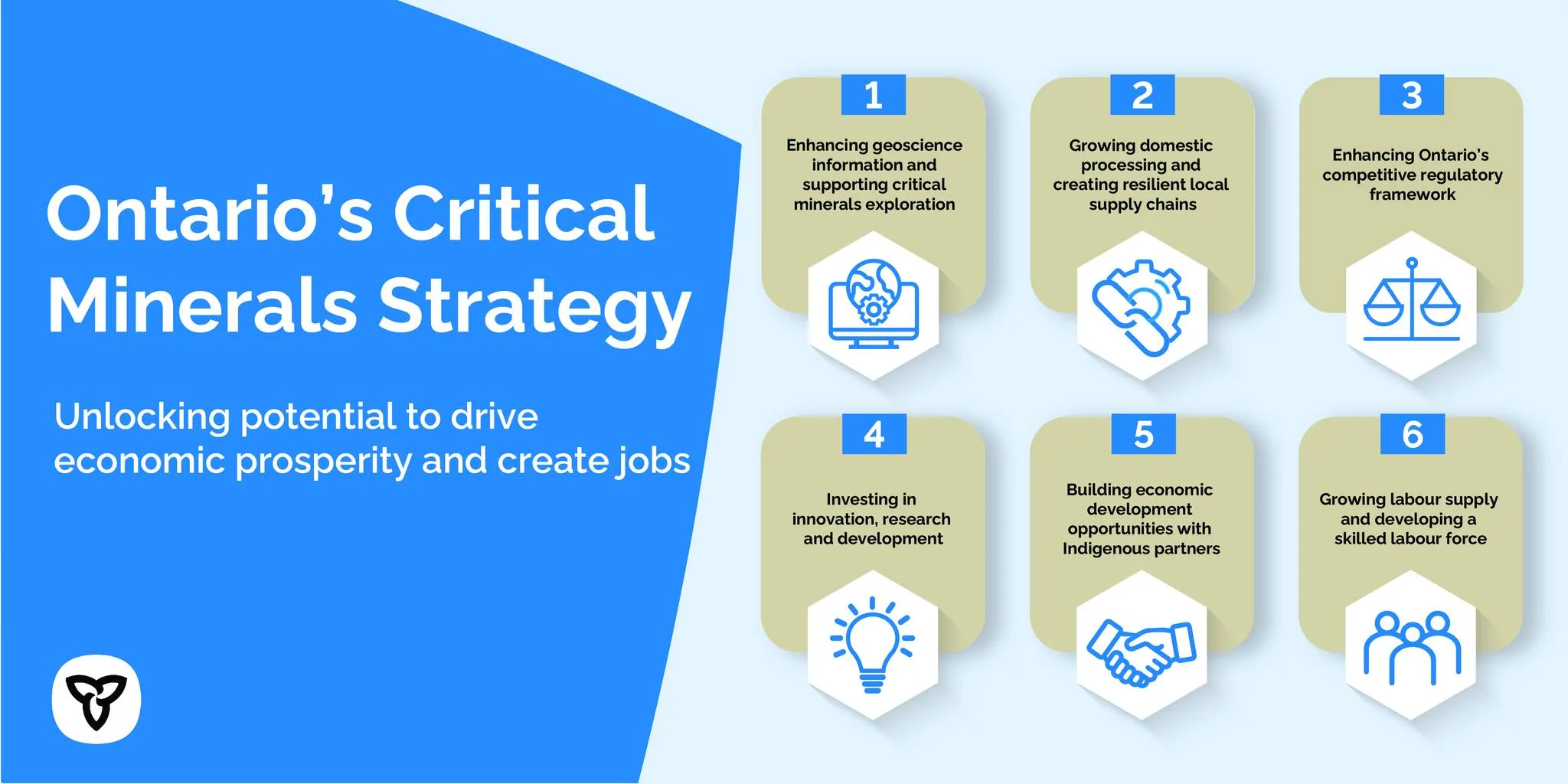Sudbury – The Government of Canada is working to seize the generational opportunity presented by critical minerals while ensuring that Indigenous Peoples and communities share in those benefits. Canada is well positioned to be a global leader and first-class producer of a wide variety of critical minerals that are essential to power the clean economy — including nickel and copper — and, in turn, create good jobs and support economic opportunities across critical mineral value chains — from mining to processing, manufacturing and recycling.
Jonathan Wilkinson, Canada’s Minister of Energy and Natural Resources, announced funding to support the further development of critical minerals in Sudbury and the surrounding region.
Minister Wilkinson announced up to $8.4 million in conditionally approved funding provided through the Critical Minerals Infrastructure Fund (CMIF), pending final due diligence from Natural Resources Canada, for five critical mineral infrastructure development projects in the Sudbury and Timmins regions. This investment would include:
- Up to $6.8 million for the Crawford Nickel Sulphide Project to inform the mine’s electrification and connection to the Ontario electricity grid. This includes:
- Up to $2.4 million for Transmission Infrastructure Partnerships 1 Limited to advance a transmission line connecting the Crawford Nickel Sulphide Project to the Ontario power grid.
- Up to $4.4 million for Canada Nickel Company Ltd. to conduct studies to inform the Crawford Nickel Sulphide Project’s electrification plan. When in production, the Project is expected to create over 1,500 high-paying jobs, according to Canada Nickel, and its electrification will reduce greenhouse gas emissions by 60 percent compared with diesel-powered operations.
- Up to $1.6 million for Magna Mining Inc. to support pre-construction activities to help power the Shakespeare and Crean Hill mines with clean electricity and connect the Shakespeare mine to the Ontario highway system. These mines will produce nickel and copper and help meet demand for these critical minerals as demand for use in clean technologies increases. The Crean Hill project is restarting an existing mine to meet this demand.
Also, with $2.7 million from Natural Resources Canada, Giyak Mishkawzid Shkagmikwe Inc. (GMS) and Taighwenini Technical Services Corporation (TTS), the economic development corporations of Atikameksheng Anishnawbek and Wahnapitae First Nation respectively, will purchase two production mining drills. These drills will be leased out to support First Nations training opportunities, wealth generation and participation in the clean economy. This purchase will help Indigenous partners participate in the revitalization at Vale’s Stobie mine, which is a nearly $1-billion joint project of Vale, Thiess, United Steel Workers and local First Nations, to produce more nickel and copper. The historic Stobie Pit, which ceased operations in 2017 after 100 years, will be restarted to continue providing good jobs for the people of Sudbury, and production is expected to ramp up in the coming years.
Minister Wilkinson made the announcement while visiting the Vale Stobie mine site in Sudbury. The Minister was in Sudbury to participate in the Conference of Mining Regions and Cities hosted by the Organisation for Economic Cooperation and Development.
Critical minerals are essential components in products used for clean energy technologies such as electric vehicles, electrical transmission lines and batteries. Canada’s mining sector provides many of the building blocks of clean technologies, including nickel and copper, needed to fight climate change and build a clean economy.
Across the country, clean energy solutions are providing enormous economic opportunity for Canada. The critical mineral sector is already highly valuable to our economy. In 2022, the minerals and metals sector directly employed 420,000 people and contributed $109 billion of Canada’s total gross domestic product (GDP). Since 2020, automotive and battery manufacturers have announced investments of over $40 billion in electric vehicle production and the battery supply chain. With government support and with demand for critical minerals expected to double by 2024, these sectors will only grow. This investments in mining and critical minerals will help deliver jobs and economic opportunities for Northern Ontario, along with Indigenous partners and communities.
“Today’s investments are about fostering Northern Ontario’s mining expertise to create more jobs and drive economic growth. It is our priority that Indigenous partners have a part to play in the development of natural resources on our way to a clean energy future. The mining industry is one of the top employers for Indigenous communities across Canada, and we want to continue to encourage collaboration between mining and Indigenous communities.” – Jonathan Wilkinson, Minister of Energy and Natural Resources








